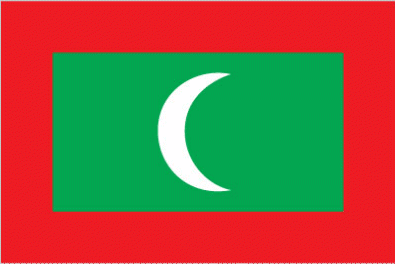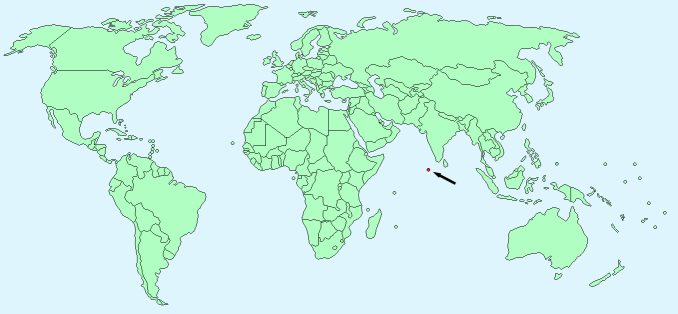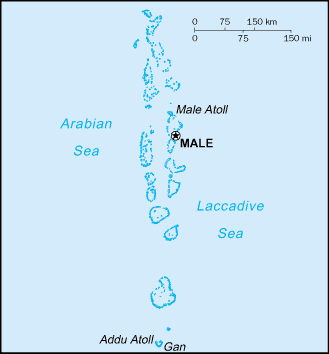Maldives


Continent – Asia
Region – Southern
Size – 298 km²
Geography – flat with sandy beaches
Language – Dhivehi (official), English
Religion – Muslim 100% (official)
Monetary Unit – Maldivian rufiyaa
Natural Resources – fish
Agriculture – coconuts, corn, sweet potatoes; fish
Industry – tourism, fish processing, shipping, boat building, coconut processing, woven mats, rope, handicrafts, coral and sand mining

Neighbouring Countries – None
Population – 393,595 (2014 estimate)
Population Growth Rate – -0.09%
Average Life Expectancy – 75.15
Capital City – Male (156,000)
Highest Mountain – No mountains
Longest River – No rivers
Climate – tropical – 28°C – 33°C all year
Yearly Rainfall – 160 cm (approx) mostly June to December
Plant Life – scrub, Coconut, breadfruit, plantain, papaya, mango, banyan
Animal Life – rats, rabbits, flying foxes
Bird Life – ducks, bitterns, crows, curlews, snipes, sea birds
Fish Life – crabs, crustaceans, turtles, sea fish, sharks, swordfish, porpoises
Harvard Reference for this page:
Heather Y Wheeler. (2015). Maldives. Available: https://www.naturalhistoryonthenet.com/Facts_Figures/Country_Facts/maldives.htm. Last accessed Tuesday, July 19, 2016
Facts and Figures Pages
